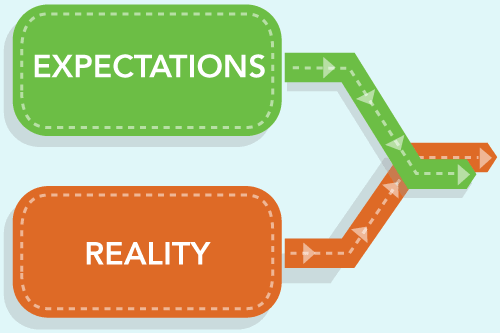Someone asked Emma what she’d recommend they say in answer to the question, “how high functioning is your child?”
Emma wrote, “I recommend being patient with them and saying that functioning labels will almost always give the wrong idea to those who are trying to understand.”
I have thought about Emma’s response a great deal since she wrote it and asked her if it would be okay to write a bit more about this, specifically in relation to some of the issues Emma confronts on a daily basis. Emma gave me permission.
“Red car, red truck, red car, red car, red car, red truck, red backpack, red car, red car, red car, red car, red truck, red van, red car…” Emma said as we drove to the airport yesterday.
It is inaccurate to say Emma does not speak. She does speak and her words are accurate in that we did pass all of those things in exactly the order she listed. In fact, a few times when I protested because I did not see a red car pass us, after Emma said, “red car,” Emma will correct me and point to a parking lot father away that I had not noticed, where there was a red car. If there is one thing I have come to understand, it is that my daughter is never wrong about such things. If she says, “red sweater” it is not a fantasy, it is because she just saw someone wearing a red sweater, even if I didn’t see them or notice.
Emma has never lined up toys, but she lines up words. To those of us new to all of this, it can seem strange, even bizarre, but it is her way of taking care of herself and is calming to her, please read more about Emma’s thoughts on self-care ‘here‘. However to people who do not know Emma, they listen to her, try to engage her in conversation and then make assumptions about her intelligence based upon the list of words she utters. If they try to engage in a conversation about the red car we just passed, Emma will typically ignore them and continue with her list.
When it comes to “functioning” labels, people who try to have a conversation with Emma will, typically, come to the conclusion she is “moderately” or “severely” autistic. People take this to mean she is “low” functioning. But if someone reads a post, like this ‘one’ that Emma wrote, pointing to one letter at a time on her stencil board, they may assume she is “high functioning” or they may come to some other conclusion, but they will not assume she is “severe”.
Until we were able to help Emma tell us what she was thinking, we had no idea what she was capable of. A little over a year ago her school sent home “reading comprehension” work. Emma was unable to do any of it. At the time we tried a number of different things, but still Emma was unable to answer the questions as they were written and it was assumed she did not understand the simple story given to her. We had no idea how completely wrong we were in our assumptions. It was the same with the ongoing insistence that she read out loud and that when she could not, this also then meant that she was unable to read silently or at all.
The same thing happened with simple addition and subtraction. It was assumed Emma could not do the math sheets being given, meanwhile she not only knew addition and subtraction, but knew multiplication and division, despite having never been formally taught either one. These assumptions were repeated when it came to telling time and the concept of money or what a penny, nickel, dime or quarter were worth. At her IEP meetings it was assumed these “concepts” were too abstract and difficult for her to comprehend. None of us had any idea just how wrong we were.
I wrote about some of this ‘here‘ and ‘here‘. Now, just over a year later I re-read those older posts and am so grateful we know better. Knowing better has changed everything, but had someone told me just over a year ago that Emma would be writing the insightful, wise and incredibly philosophical posts for this blog that she has been recently, I would have been incredulous. As I’ve said before, this is much more an example of my neurological limitations than it is of anything else.
“I recommend being patient with them and saying that functioning labels will almost always give the wrong idea to those who are trying to understand.”
Thank you Emma for being patient with us!

“Red Dress”








